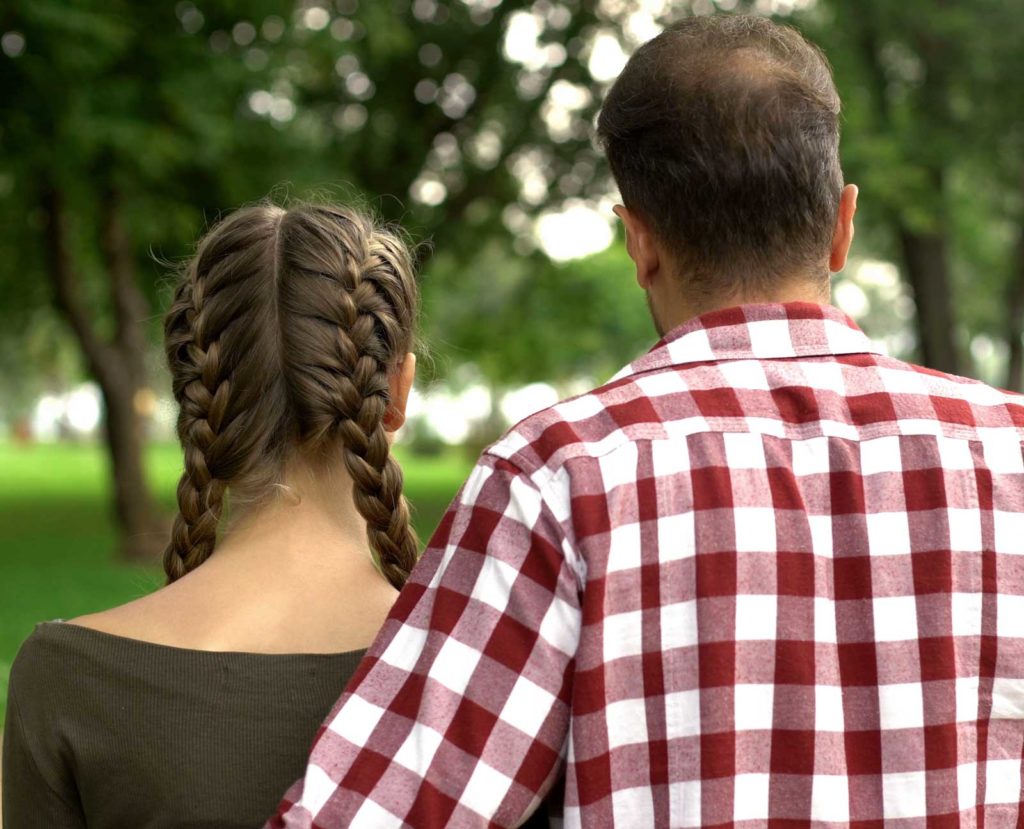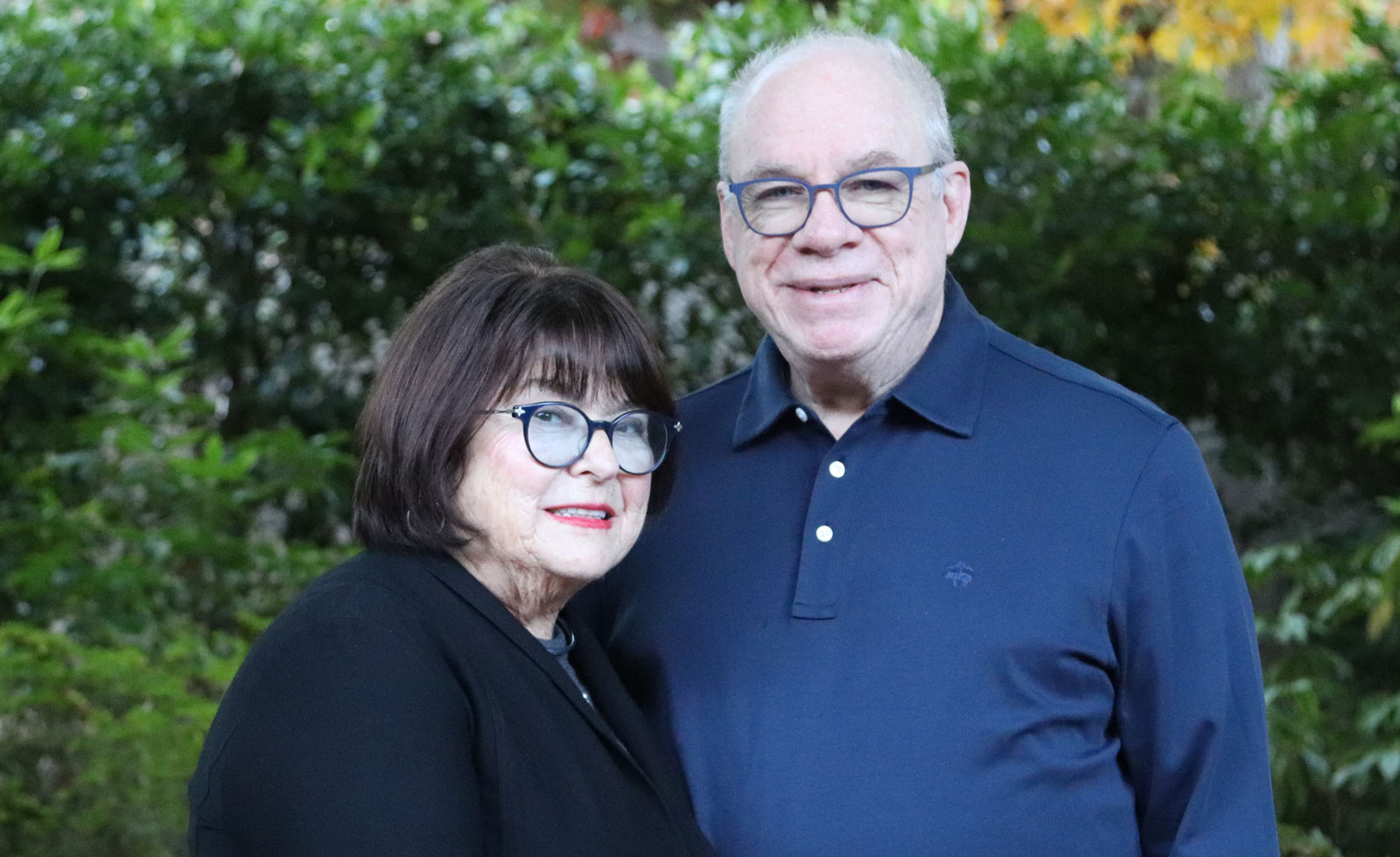2021 JOURNEYS MAGAZINE
Grateful Families
Families of graduates stay connected to Skyland Trail in many ways. They speak to other families considering treatment, support families through peer support in STEP, or share their stories in the community. Many families make charitable gifts to help others access and complete treatment. We are thankful for our Grateful Families.
Giving Back Over Time
Father of a Skyland Trail adolescent program graduate
Three years ago, our 13-year-old daughter attempted suicide for the first time. We admitted her to a hospital, and then she came home. Over the next couple of years, while we tried therapy, medications, and various treatment programs, she continued to struggle and was hospitalized two more times.
My wife and I didn't sleep well at night because we were always worried about her. We knew we needed a treatment program that would not just be about getting her stable, but about getting her the skills she needed to cope. Thankfully, we found Skyland Trail.

After completing the adolescent residential treatment program, our daughter is far more confident and capable of navigating her teenage world. When things happen - disagreements or disappointments for example - she recovers much faster and does not spiral into a crisis. I can see her applying the skills she learned while in treatment. When we have a conflict within the family, while she was always open about sharing her feelings, she now is also able to look for a strategy to engage with us and work through it.
We relied on our insurance benefits to cover the cost of my daughter's treatment at Skyland Trail. After several weeks, many of her symptoms had improved, and she was doing really well. Unfortunately, doing really well triggered the insurance company to not authorize any additional time in treatment. While she had improved, both I and her treatment team at Skyland Trail believed that my daughter was not quite ready to graduate and come home. With our other daughter about to start college, we were not capable of covering the full cost of residential treatment for the additional time needed.
"Over time, we might be able to help somebody in our situation."
Skyland Trail generously awarded us financial aid to stay another couple weeks. I couldn't believe it! I knew that the treatment team at Skyland cared about my daughter. My daughter told me that there was not an uncaring employee there (in contrast to some of the hospital environments she had experienced before). But then for Skyland to offer us this financial aid scholarship so that she could feel ready and prepared to continue her progress at home, that just touched me like you wouldn't believe. They really do care about my daughter!
Later, my wife and I decided that we'd like to do what we can right now to give back and started donating monthly as part of the "grateful families" program. Over time, we might be able to help somebody in our situation. Hopefully over the years, it will be more than what was given to us.
We are so thankful for the changes our daughter was able to make through her work at Skyland. She is in high school now and getting straight As. We continue to participate in family therapy, and our daughter receives DBT in-home support services. Skyland Trail helped connect us to these services. Thank you to everyone for making Skyland Trail such a remarkable place and for helping families like ours benefit fully from your programs.
A Question of Access
An interview with grateful family Ellen and David H.
David and Ellen’s daughter, Devi, graduated from the Skyland Trail adult day treatment program six years ago. Devi, a mother, teacher, artist, and leader in her school and community, had never shared with her parents that she was struggling with depression. Her parents were shocked when their son-in-law called to tell them Devi was in the hospital.
Since completing treatment at Skyland Trail and continuing therapy after returning home, Devi is doing well and is far more open with her family – and her community – about her diagnosis and challenges. She writes a blog and recently wrote a book with her rabbi to help people understand more about mental illness and the importance of getting treatment. Her parents, David and Ellen, are proud of her advocacy.
“Most people don’t understand what mental illness is, even if they have it in their own family,” says Ellen. “When I grew up, nobody said the word ‘cancer.’ If you had to, you might whisper it. But now people talk about cancer and other diseases openly. If people had more education about diseases like depression, they would see that it’s not something to be embarrassed or ashamed about. You wouldn’t be ashamed if you had heart disease. It’s the same thing. This is an illness. And it has to be dealt with as an illness.”
“Mental health still needs consciousness raising,” says David. “Today, you’re hearing more stars and celebrities talking about their own illness, which I think is tremendous and helpful in normalizing mental illness and reducing the stigma. And I think what people like Devi are doing in their own communities is incredibly important.”
Says Ellen, “Devi has been very open, so many families come to me and say, ‘Oh my niece, or my cousin, or my friend’s daughter is really in pain.’ I encourage them to take steps to get the person into treatment. Sometimes people think that working more or keeping busy will take care of it. I tell them that life will be so much better if you seek help. And you’ve got to go to a good place.”
David and Ellen say that concerns about the cost of treatment inevitably come up as part of these conversations. And those concerns are not new to them.
“Being at Skyland and talking to other families heightened our awareness of how much of society doesn’t have access to quality care and inspired us to try to create some level of support,” says David. “Up until Devi experienced it, I didn’t understand the extent of the mental health problem. It’s a crisis. Skyland opened our eyes to what can be done and what isn’t being done for so many in society.”

“Quality mental health care should not be restricted to those who are financially strong,” he says. “It’s a question of access. If you have cancer or heart disease, your doctor can refer you to a specialist for treatment and support, and ability to pay does not factor into your treatment to the same extent as it does for mental health care.”
“Which is why, when Skyland Trail came to us and said we want to start an Alumni Family scholarship program, that was so attractive to us. Because we want people to be able to go to Skyland if they’re told it’s a good resource.”
David and Ellen hope that by investing in mental health organizations like Skyland Trail, they can help move the needle on raising awareness about mental health and improving access to treatment.
“Devi entered treatment when she was 38, and she was seriously ill,” says David. “Maybe we shouldn’t wait until someone is 38 and in crisis. Wouldn’t it be nice if we could start addressing issues earlier? Educating everyone in the community who can help connect young people to treatment – teachers, faith leaders, parents – is vitally important.”
“Access to quality treatment makes such a difference,” says Ellen. “Skyland Trail was really a turning point for Devi, and we learned so much about mental illness through all of the family programs. Today, the dynamic between all of us as a family is quite different.”
Says David, “I asked Devi a few months ago, ‘Which mental health organization should receive our financial support? Devi said, ‘Skyland.’ Six years after her treatment, I think that says a lot. And we want others to have that same kind of experience.”
Thank You to Our Event Sponsors
DID YOU KNOW? In 2020, 175 Grateful families made a charitable gift, a 27% increase over 2019.
